
#ProjekMuhibah Strategy 4 – Opening up Economic Sectors Safely
REFSA outlines a step-by-step framework to re-open the economy in a manner that is safe, responsible, and based on science and data. See our infographics here.

REFSA outlines a step-by-step framework to re-open the economy in a manner that is safe, responsible, and based on science and data. See our infographics here.
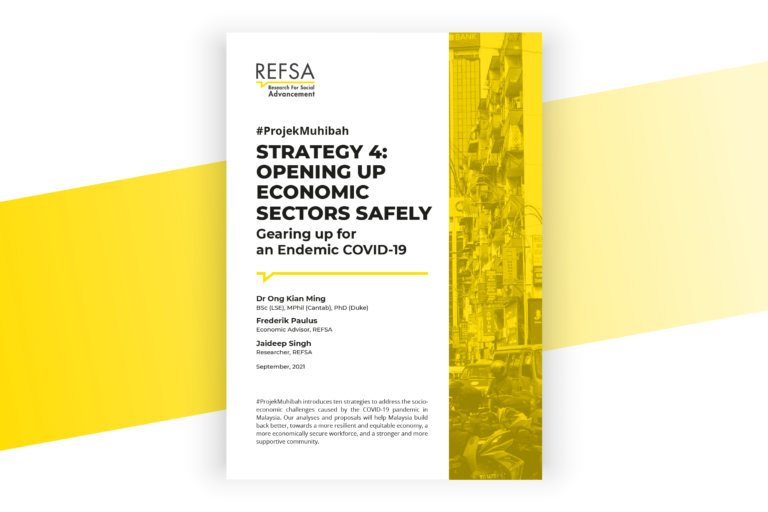
We outline different frameworks to structure the reopening of the economy in a manner that is safe, responsible and based on science and data in order to boost consumer confidence.
While the outlook may be brighter towards the end of the year, there are still plenty of downside risks, and given the dynamics of the pandemic and the economy, we wouldn’t expect a significant improvement until Q4. Here's why.

政府除了为女性提供补贴,也必须将女性福利也涵盖在经济振兴的计划当中,多鼓励女性参与国家经济建设,对国内经济也将会带来积极的影响。
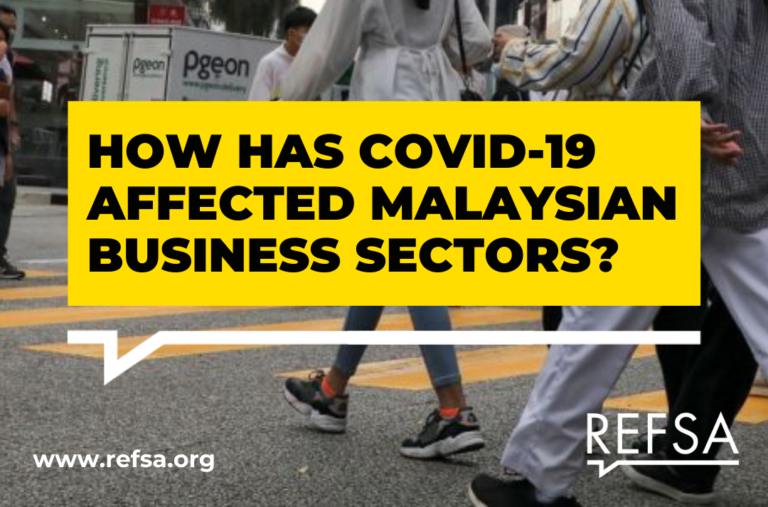
COVID-19 doesn't discriminate between "essential" and "non-essential" sectors. Here's how it has affected various sectors across Malaysia.
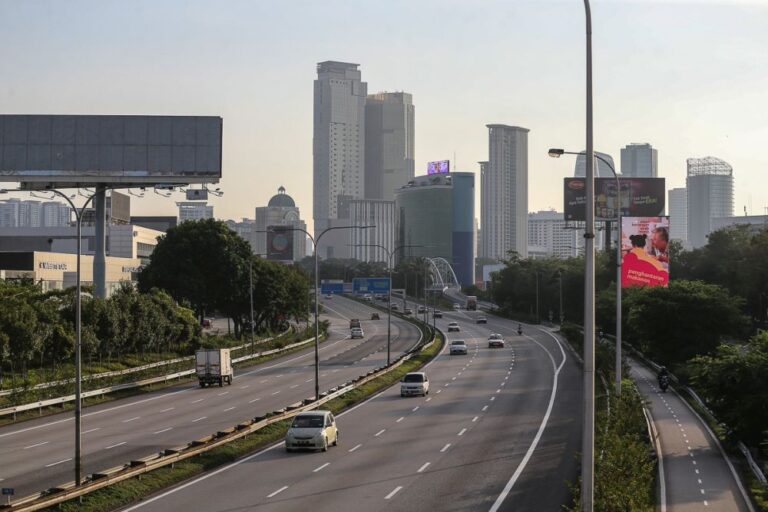
REFSA Comm Director Iskandar Fareez along with Hwok Aun Lee of ISEAS discusses NEP’s key lessons, impacts, and implications for Malaysia’s future on BFM podcast.
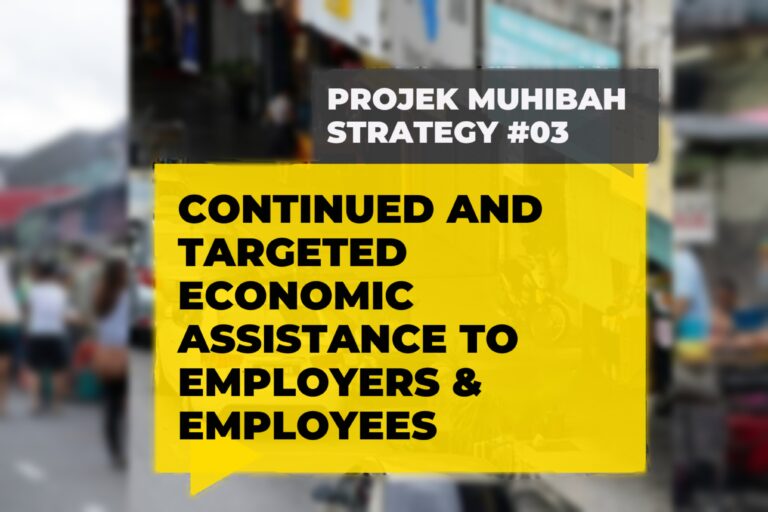
In REFSA's #ProjekMuhibah series, Strategy 3 calls for continued and targeted assistance to businesses and individuals. See infographics here.
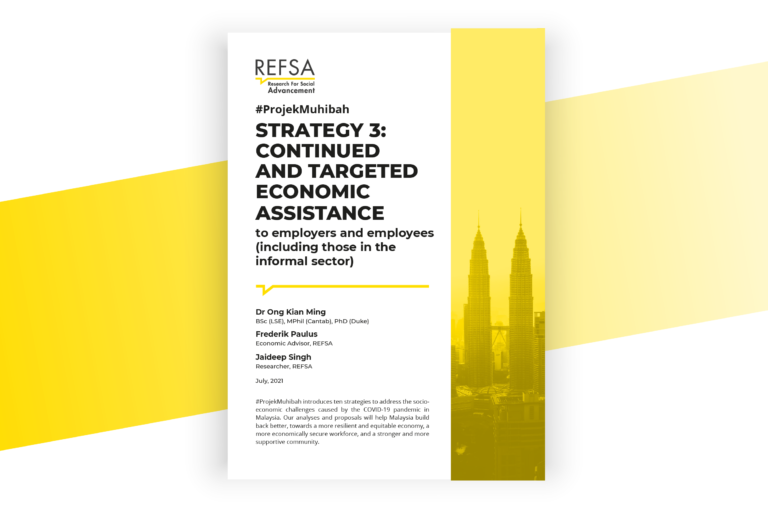
In #ProjekMuhibah Strategy 3, we propose a comprehensive strategy for governments to raise fiscal spending and provide immediate economic assistance to those hit-hardest by the pandemic.
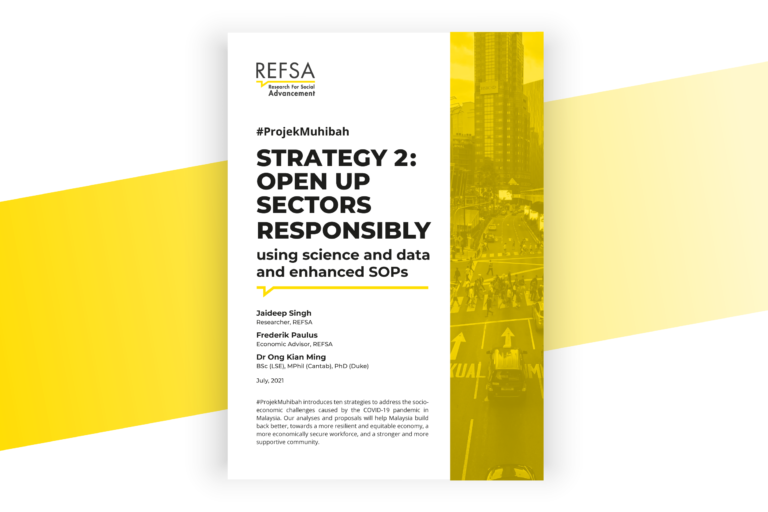
Malaysia should tailor dynamic SOPs for different sectors and spaces using science and data-driven approaches. Read our full #ProjekMuhibah strategy 2 here.
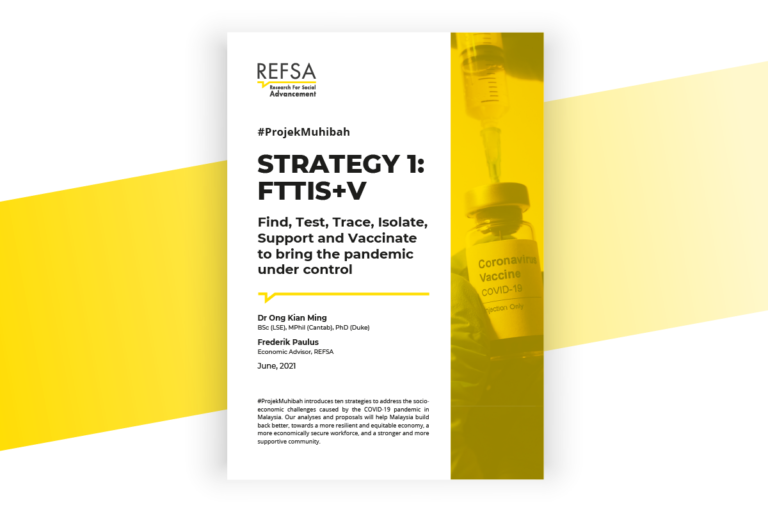
Instead of blanket lockdowns, REFSA proposes #ProjekMuhibah Policy 1, which comprises a targeted Find, Test, Trace, Isolate, Support and Vaccinate (FTTISV) framework.